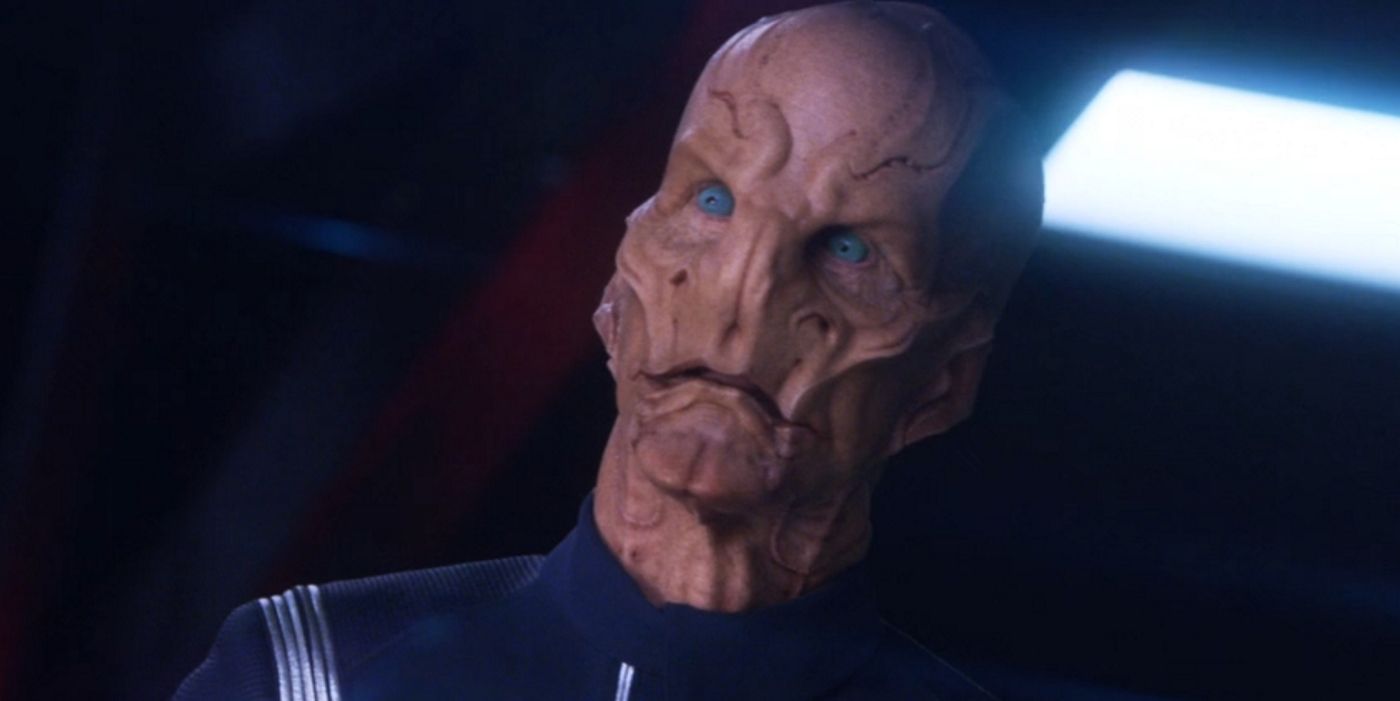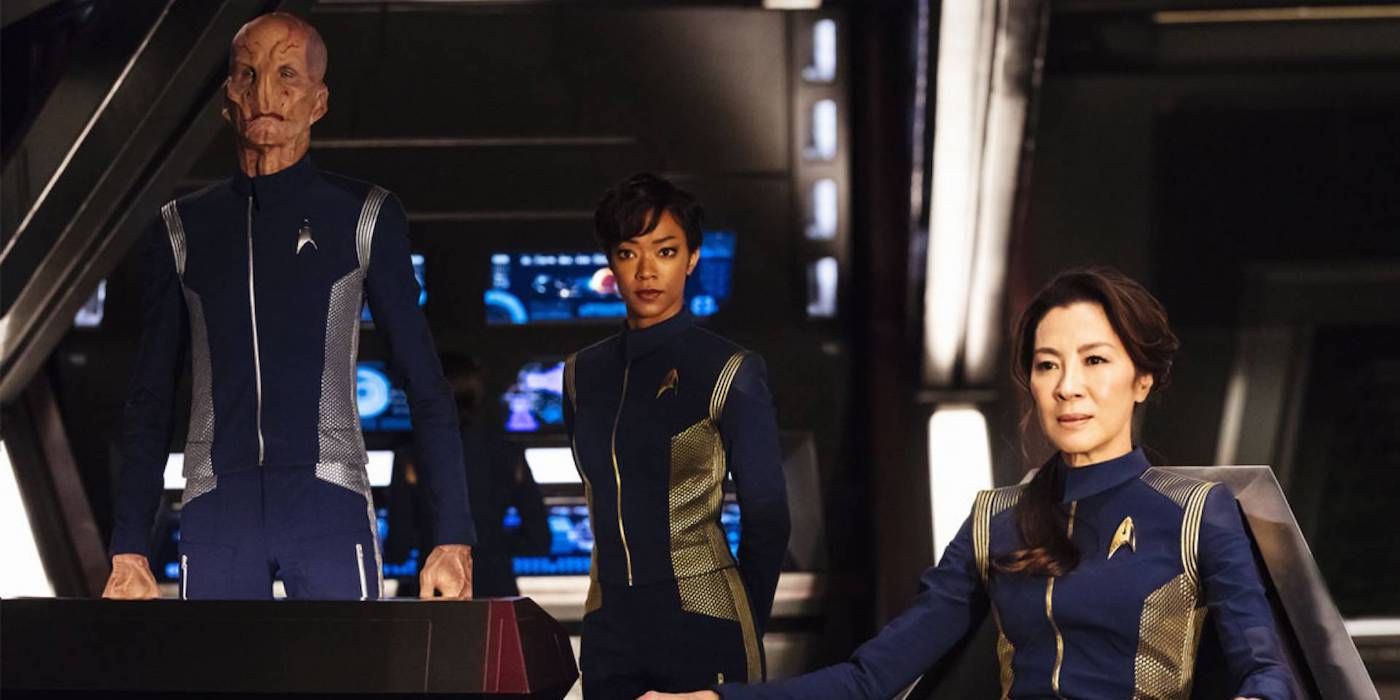Star Trek: Discovery's showrunner has discussed how the new series will handle racy topics. The premiere of the latest Trek is finally on the horizon, after several shifts behind the scenes and what felt like endless delays. The CBS All Access show returns to a similar time period as the original series, and will take viewers on a journey following Lieutenant Commander Michael Burnham (Sonequa Martin-Green), a human Starfleet officer who just happens to be Spock's half-sister.
That surprising familial link isn't the only plot point that has fans buzzing about Discovery. Unlike any previous Star Trek TV series, the main character isn't a captain, and the action takes place on two different Starfleet ships. Then there are the Klingons, who have a completely different look than the one adopted for most of the series and films. Despite some of the character changes and upgraded technology, however, one fundamental aspect of the Trek universe will remain intact.
Airing on a streaming service rather than broadcast TV, the creators of Star Trek: Discovery have the ability to present more adult content without restriction. However, in an interview with Entertainment Weekly showrunner Aaron Harberts explains they've decided to tread lightly:
"Every writer’s impulse when you get to work on the streaming shows with no parameters is to go crazy. But then you look at things like: How does nudity play on Trek? Eh, it feels weird. How does a lot of [profanity] on Trek? Not so great. Are there moments where it merits it that we’re trying to push here and there? I would say we’re trying to push more by having the type of complicated messed-up characters who aren’t necessarily embraced on broadcast."
The Original Series fans remember Captain Kirk's gratuitous shirtlessness with fond amusement, and the J.J. Abrams films pushed the envelope a bit more, but for the most part the series has existed within a fairly modest range. Harberts puts that down to the important legacy of Star Trek.
"I’m not saying we’re not doing some violent things or doing a tiny bit of language. But what’s important to the creative team is the legacy of the show — which is passed down from mother to daughter, from father to son, from brother to brother. We want to make sure we’re not creating a show that fans can’t share with their families. You have to honor what the franchise is. I would say we’re not going much beyond hard PG-13."
Executive producer Alex Kurtzman previously promised that Discovery would fit well within the continuity of the Trek universe, and it sounds like everyone involved wants to continue to honor creator Gene Roddenberry's original utiopian vision. The Star Trek shows and films, at their best, have been about diversity and unity, hopefulness, and using your wits to solve problems and make the universe a better place. When you have a franchise that has inspired generations of kids to aspire to greater things, including space travel, it makes sense not to go too far beyond where your other shows have gone before.
Star Trek: Discovery premieres September 24 on CBS, before moving to CBS All Access for further episodes.
Next: Why Bryan Fuller Stepped Away From Star Trek: Discovery
Source: EW


